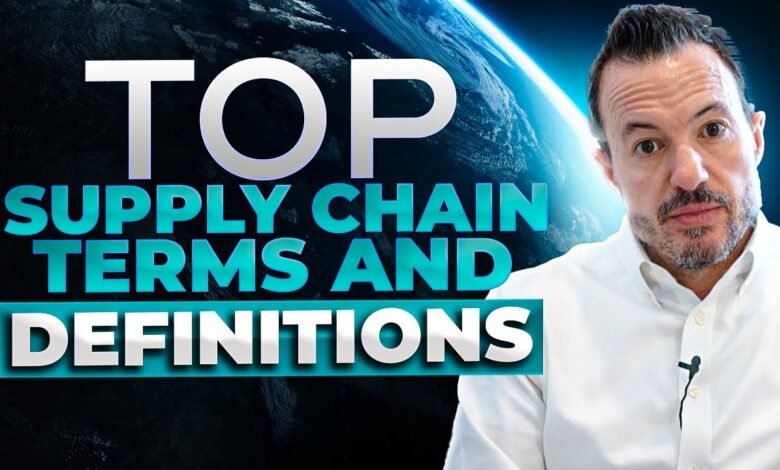Top 20 Essential Supply Chain Terms Every Beginner Should Know

Top 20 Essential Supply Chain Terms Every Beginner Should Know
Are you new to the world of supply chain management? This quick guide covers the 20 most important supply chain terms that every beginner should master. From the basics of inventory to the advanced strategies of supply chain visibility, understanding these concepts will give you a head start in logistics and supply chain careers.
What is a Supply Chain?
A Supply Chain is a network involving organizations, people, activities, information, and resources—all working together to deliver a product or service from suppliers to customers. Efficient supply chain processes are vital for business success.
Core Supply Chain Terms & Their Meaning
1. Logistics
The process of planning, implementing, and controlling the movement and storage of goods, services, or information from origin to consumption.
2. Inventory
Raw materials, work-in-progress items, and finished goods kept by a company to support production and meet customer demand.
3. Lead Time
The time it takes from initiating an order to its completion or delivery.
4. Procurement
The acquisition of goods, services, or materials from suppliers.
5. Demand Forecasting
Predicting future customer demand using market trends, historical data, and other information to plan inventory and production.
6. Just-in-Time (JIT)
A strategy where materials and products are produced or acquired only as needed, reducing inventory costs.
7. Warehousing
Storing goods in a designated location until needed for production or sale.
8. Distribution
Delivering goods from the manufacturer or warehouse to the end customer.
9. Third-Party Logistics (3PL)
Using external organizations to manage logistics operations such as transportation, warehousing, and order fulfillment.
10. Supply Chain Management (SCM)
Coordinating and overseeing all supply chain activities to maximize efficiency and deliver value to the customer.
Advanced Supply Chain Terms
11. Bill of Materials (BOM)
A detailed list of raw materials, components, and subassemblies required to manufacture a product.
12. Freight Forwarder
A company that organizes and arranges shipments for other companies, managing logistics from origin to destination.
13. Cross-Docking
Unloading goods from inbound vehicles and directly loading them onto outbound vehicles with minimal or no storage.
14. Order Fulfillment
Receiving, processing, and delivering customer orders efficiently.
15. Reverse Logistics
Moving goods from the customer back to the seller or manufacturer for returns, repairs, or recycling.
16. Safety Stock
Extra inventory kept on hand to avoid stockouts in case of unexpected demand or disruptions.
17. Vendor-Managed Inventory (VMI)
Allowing suppliers to manage and replenish inventory directly at the customer’s location.
18. Supply Chain Visibility
Tracking products and materials across the entire supply chain, from raw materials to final delivery.
19. Total Cost of Ownership (TCO)
The full cost of acquiring, operating, and disposing of a product—including purchase price, maintenance, and end-of-life costs.
Why Learn These Supply Chain Terms?
Understanding supply chain terminology is vital for making smart career moves, improving internal communication, and boosting your business’s operational efficiency. Whether you’re applying for your first supply chain job, taking logistics training, or simply aiming to sound more professional in meetings, mastering these terms is your first step.
Final Thoughts
Start your supply chain journey by memorizing and understanding these essential terms. As you grow in your career, these concepts will help you analyze problems, create solutions, and communicate effectively with colleagues and partners in the logistics world







